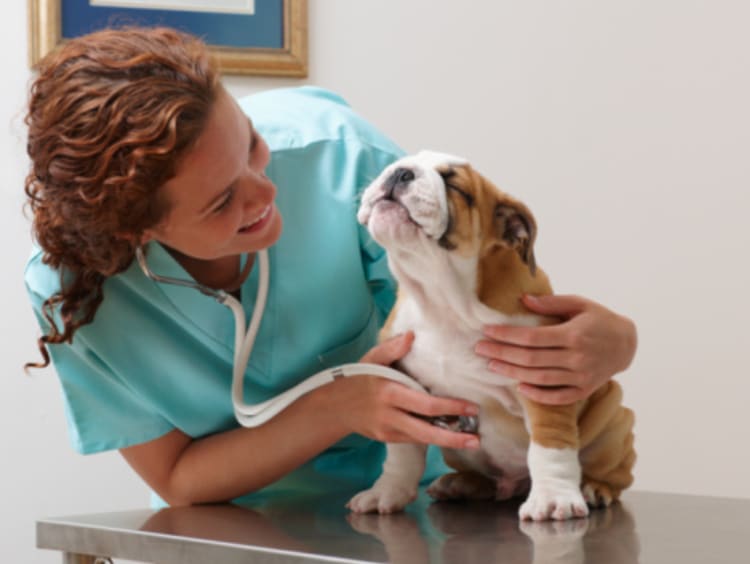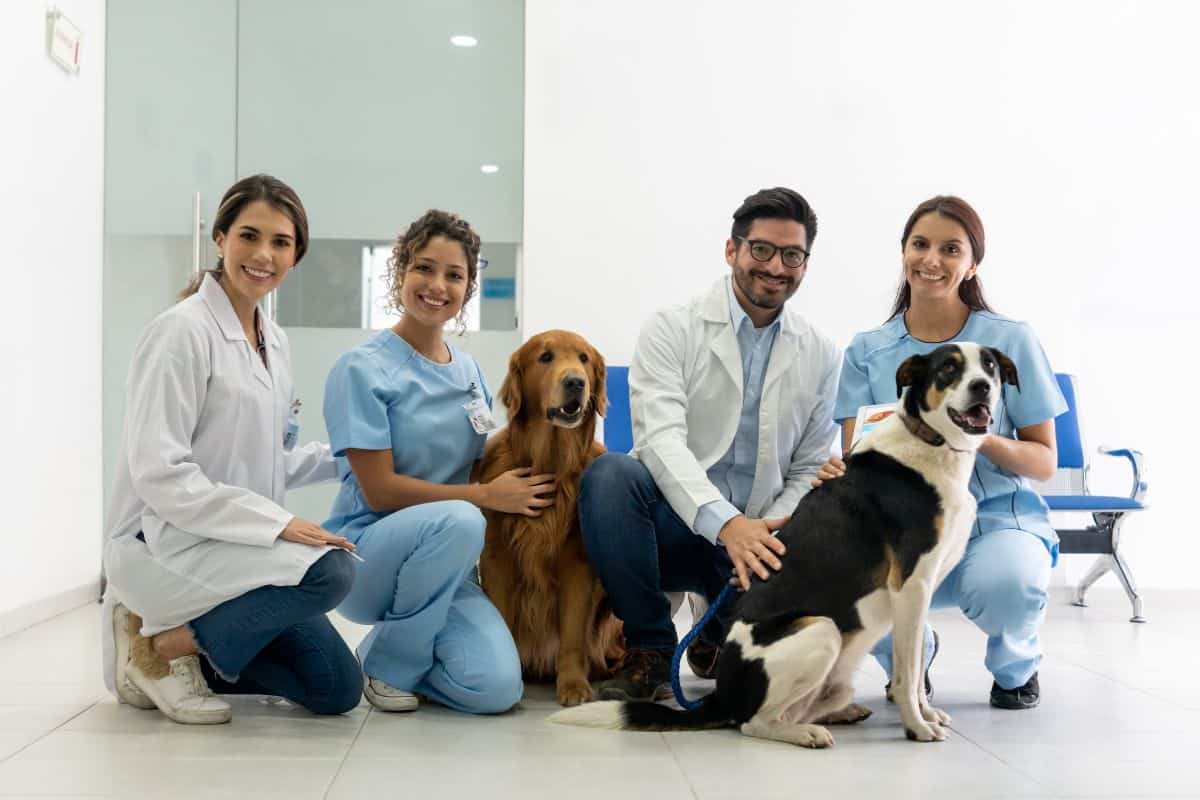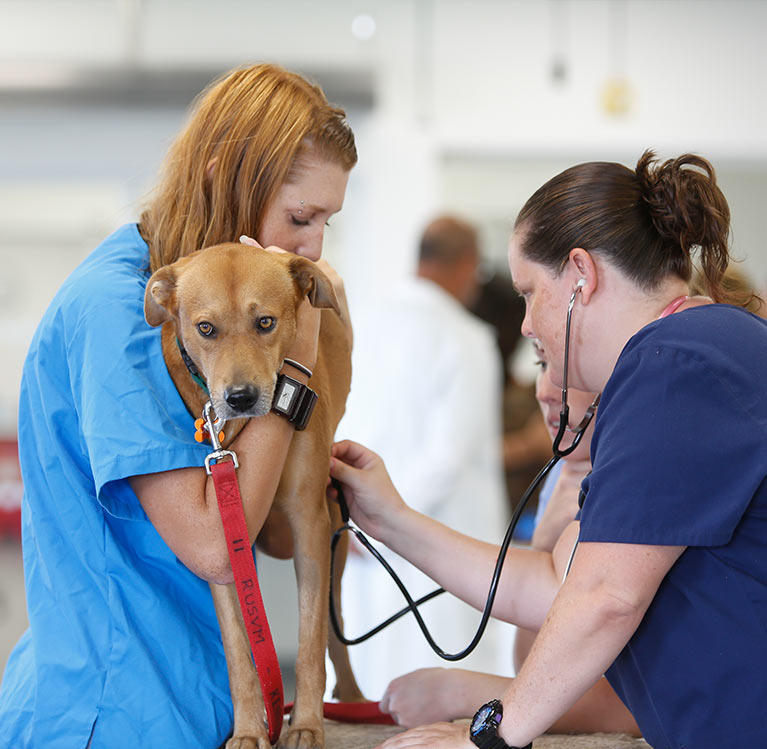Comprehensive Providers Used by Vet McKinney for Your Furry Friends
Comprehensive Providers Used by Vet McKinney for Your Furry Friends
Blog Article
Unveiling the Vital Role of Veterinarians in Animal Health
The diverse duties of vets extend much beyond the boundaries of traditional animal treatment, placing them as necessary contributors to both private animal health and wellness and wider environmental security. Their experience in condition avoidance, dietary support, and behavioral management plays a critical function in the well-being of family pets and livestock alike. The ramifications of their work reverberate via public health and wildlife conservation efforts, highlighting a complex interplay frequently ignored. As we explore these dimensions, the question develops: what are the hidden challenges and chances that shape the future of vet medication?
Importance of Veterinary Treatment
Although many animal proprietors may perceive vet care as a routine need, its significance prolongs far past simple check-ups. Vet treatment plays a vital role in ensuring the total health and wellness and wellness of pets, incorporating a wide array of services that address both healing and precautionary demands. Routine veterinary brows through permit early discovery of potential health problems, therefore increasing the possibility of effective treatment and recovery.
Moreover, vets offer essential guidance on nourishment, habits, and general care, gearing up pet owners with the understanding required to maintain their pets' lifestyle. Vaccinations and bloodsucker control are fundamental elements of vet treatment, protecting both specific animals and the broader community from zoonotic illness. The expertise of veterinarians is crucial in detecting and managing complex medical conditions, facilitating advanced medical interventions, and carrying out essential emergency treatment.
On top of that, veterinary experts contribute significantly to public health and wellness initiatives by keeping an eye on disease frequency within animal populations. Their function reaches ensuring food safety via the health and wellness administration of animals, impacting the agricultural industry and human health and wellness alike. Thus, veterinary care is indispensable to both animal well-being and public safety and security, highlighting its significance in modern society.
Roles in Disease Avoidance
Vets play an essential role in condition prevention, acting as both guardians of pet health and wellness and guards of public safety. Their competence contributes in determining, tracking, and managing contagious illness that can impact both humans and animals. With normal health and wellness assessments and inoculations, veterinarians aid mitigate the spread of zoonotic conditions, which can have serious effects for public health.
In addition, vets participate in proactive education and learning, informing pet proprietors and livestock manufacturers about best practices in health and biosecurity. These measures are important in avoiding episodes, particularly in agricultural settings where close call in between pets can facilitate disease transmission. In addition, veterinarians frequently team up with public health officials to track illness patterns and create feedback methods, ensuring that possible health and wellness risks are resolved quickly.
Veterinarians additionally perform research study to comprehend disease devices and improve analysis strategies, adding considerably to the improvement of precautionary medication. By promoting liable animal possession, inoculation programs, and regular vet exams, they empower communities to take an active duty in illness prevention. Essentially, the diverse contributions of veterinarians are essential in safeguarding not only animal populations however also the health and wellness of the wider area.
Contribution to Food Safety And Security
Ensuring food safety and security is an essential facet of veterinary medicine that directly affects public wellness. Vets play an important duty in the food supply chain, from ranch to table, mitigating risks related to foodborne ailments. Their competence is vital in keeping track of animal health, implementing biosecurity steps, and supervising the humane therapy of animals, which collectively add to the production of secure food.

In addition, vets educate farmers and food manufacturers on ideal practices for animal husbandry websites and hygiene, which even more enhances food safety. By working together with public health authorities, vets assist trace and control break outs of foodborne pathogens, thereby securing customer health and wellness. Their diverse contributions are vital in maintaining the honesty and safety and security of our food systems.
Effect on Wildlife Conservation
The function of vets expands beyond domestic pets to encompass considerable payments to wild animals preservation efforts. These specialists are essential in safeguarding and taking care of wild animals populaces, particularly despite environment loss, environment adjustment, and human encroachment. Vets engage in different tasks, consisting of wild animals rehabilitation, populace health and wellness assessments, and illness surveillance.
In wildlife rehab, veterinarians provide healthcare to wounded or unwell pets, facilitating their healing and effective reintegration into their all-natural habitats. They additionally carry out health evaluations on wild populations, which are vital for checking the general wellness of ecological communities. Animal Hospital Greensburg. recommended you read By recognizing and handling diseases that can spread in between wildlife and residential pets, veterinarians play an important role in avoiding potential episodes that might threaten both animal and human populaces
Additionally, vets join conservation strategies by recommending on ideal practices for habitat monitoring and types protection, commonly working together with preservation organizations and governmental agencies. Their know-how in pet health and wellness and welfare is vital in developing plans that benefit not only wildlife however also the biodiversity that sustains environmental equilibrium. Through these efforts, veterinarians significantly add to the preservation of wild animals and the ecosystems they inhabit.
Advancements in Vet Medicine
Current advancements in vet medication have actually considerably enhanced the ability to address both residential and wildlife health and wellness obstacles. Advancements in analysis innovations, such as advanced imaging techniques and molecular diagnostics, allow veterinarians to identify diseases at earlier stages, ultimately improving therapy outcomes. For example, the application of PCR (polymerase chain reaction) testing has transformed the discovery of contagious illness, permitting fast and accurate recognition of microorganisms.

Improvements in vaccination advancement, particularly making use of recombinant and mRNA modern technologies, have actually likewise played a vital role in protecting against outbreaks and managing zoonotic diseases. These vaccines supply enhanced effectiveness and safety accounts, profiting animal populaces and public health and wellness alike.
Lastly, the increasing emphasis on One Health and wellness initiatives highlights the interconnectedness of human, animal, and ecological wellness, cultivating joint efforts among vets, clinical professionals, and ecologists. This alternative approach is essential for proactive administration and condition prevention in a quickly transforming world.
Final Thought
Finally, the complex function of veterinarians extends far past traditional pet dog treatment, encompassing illness prevention, food safety, and wild animals preservation. Their expertise not only boosts the health and health of residential pets but also safeguards public wellness and eco-friendly equilibrium. As innovations in veterinary medicine remain to arise, the importance of veterinarians in promoting animal welfare and making certain lasting methods comes to be progressively critical, highlighting their vital payment to society and the setting.

Additionally, veterinarians typically collaborate with public wellness authorities to track condition patterns and develop action approaches, guaranteeing that possible wellness threats are attended to promptly.
By collaborating with public health and wellness authorities, vets aid trace and control episodes of foodborne microorganisms, thereby safeguarding consumer health and wellness. Their experience not only boosts the wellness and health of residential pets but likewise safeguards public health and wellness and eco-friendly balance.
Report this page